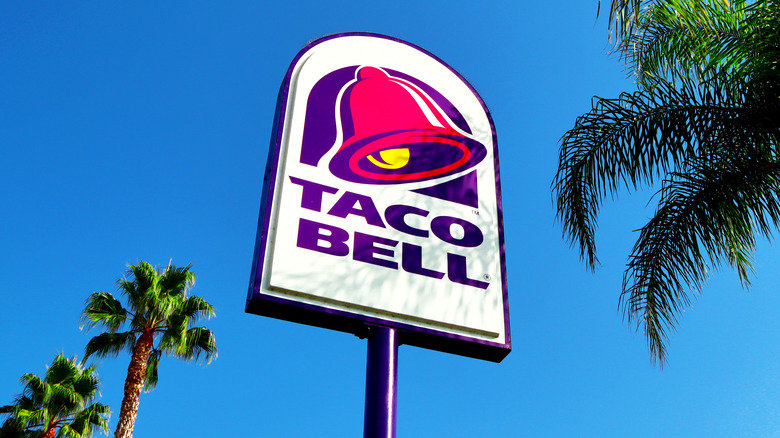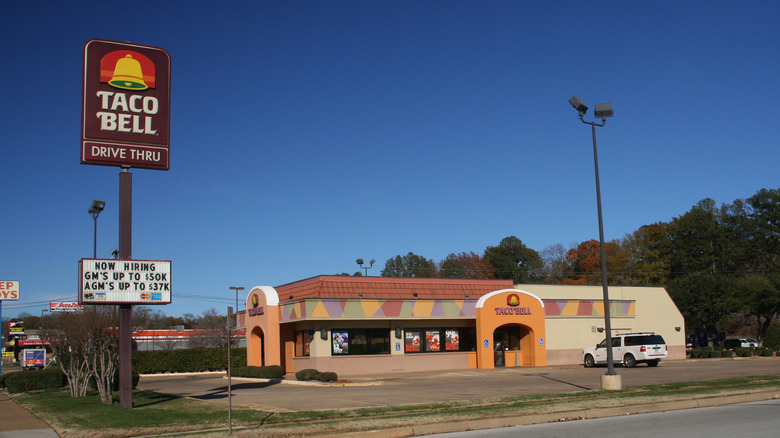The Real Reason Pepsi Bought Taco Bell
If you can't beat 'em, buy 'em. That's exactly what PepsiCo did on Feb. 13, 1978, when they bought Taco Bell for $125 million (via The New York Times). At the time of the sale, Taco Bell was a mid-size, mostly regional operation of fewer than 900 restaurants. Within five years of Pepsi's acquisition, however, the chain nearly doubled in size, expanding its network to 1,600 stores across 47 states (per Encyclopedia). As of 2020, the Mexican-inspired franchise is a global phenomenon, with more than seven thousand stores to its name, according to a recent Statista survey.
Pepsi's decision to acquire Taco Bell might seem like a no-brainer today, but it was not in the late 1970s. At the time of the purchase, Mexican food was still an emerging market in the U.S., and Taco Bell faced stiff competition on multiple fronts, including, most notably, from its future parent company (per Encyclopedia). That's right — before they absorbed Taco Bell, PepsiCo was trying to launch its own one-of-a-kind Mexican fast food chain: Taco Kid.
Taking on Taco Bell
"Taco Kid" was less of a blatant rip off of Taco Bell than it might sound. The Mexican-inspired chain, originally called "Taco Boy," was founded by Ohio businessman Hank Cartwright in the '60s. There isn't much evidence of Taco Boy's existence, but it did make it into a June 1969 issue of the Lorain Journal (an Ohio newspaper). In 1969, Cartwright had three Taco Boys in operation in Toledo and was doing well enough to attract the attention of Pizza Hut, which acquired the Taco Boy brand later that year. Pretty soon after, Taco Boy got a makeover, complete with a shiny new logo and name: Taco Kid.
When Pizza Hut was, itself, acquired by PepsiCo in 1977, Taco Kid again came under new management. Pepsi hoped to position Taco Kid as a challenge to the California-based Taco Bell, which was growing quickly and, in 1970, had gone public with 325 restaurants in operation. In the end, however, Pepsi folded, and began pursuing ownership of its competition. Taco Kid, at one point Pepsi's great hope of cornering the Mexican food market, was left by the wayside, and in 1992, according to the U.S. Patent and Trademark Office, its trademark officially expired.
Of course, PepsiCo later transformed its restaurant properties into a separate entity, Tricon Global Restaurants (per the Chicago Tribune), which ultimately became Yum! Brands, Taco Bell's current owner. However, Taco Bell and Pepsi continue to collaborate on offerings that incorporate Pepsi's Frito-Lay division. Can anyone say Doritos Locos Tacos? Yum, indeed!

